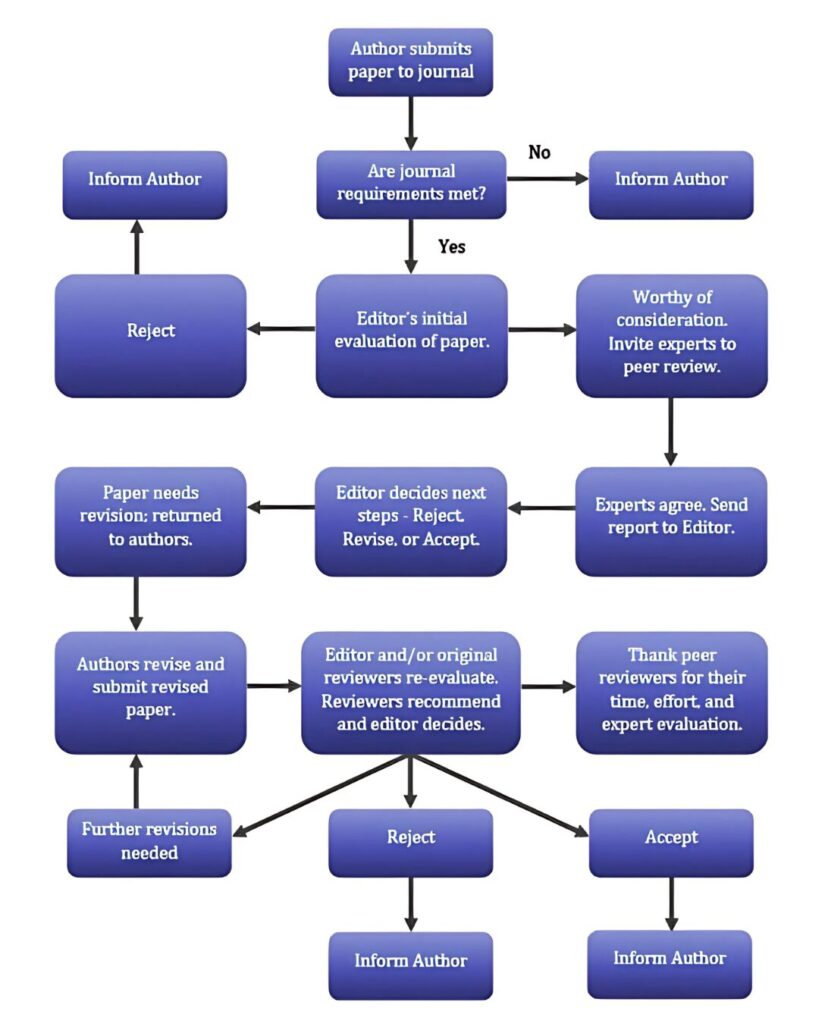In college, you’ll find many ways to learn outside of regular classes. Unlike high school, college not only lets you try out new majors and delve deeper into your chosen field but also offers great facilities, resources, and support to help you grow intellectually.
This Article Will Discuss The Following:
- Why Should I Publish As An Undergrad?
- Where Do I Start?
- Is It Hard to Get Research Published?
- How to Get Research Published
- What is the Peer Review Process?
- Publishing Your Work
Colleges and universities provide various tools and resources to students to enhance their learning and boost the institution’s global reputation. Elite schools seek top-notch professors who publish peer-reviewed literature frequently, as this enhances the university’s intellectual standing, attracting new donors, applicants, and strengthening alumni connections.

As an undergraduate, you should explore the abundant opportunities available on campus, particularly in research. Research isn’t limited to STEM fields; humanities students also find enriching research opportunities with professors in captivating subjects. Don’t let your major discourage you; there are ample chances to expand your learning beyond the classroom.
Forge strong relationships with professors by showing interest in their work and highlighting how your background could benefit their team. Be persistent, patient, and gracious in your pursuit of research opportunities, even if your first-choice professor declines – keep seeking chances for research at your university.
Why Should I Publish As An Undergrad?
It’s important that you spend time thinking about your motivations for publishing research as an undergraduate student, because it is a major time commitment; however, there are many benefits to publishing while you’re in college.
Some of the benefits of publishing as an undergraduate:
- Even if your paper is published in a lower-tier journal, you can use those articles as leverage to gain access to higher-level research teams at your university and beyond.
- Your article acts as a great piece on your resumé, which again can pay dividends should you pursue a master’s/doctorate program in the future.
- Often, research is a collaborative effort, and this process can also teach you valuable skills in how to effectively work in teams and hone your leadership potential.
- Lastly, it provides you the opportunity to showcase your academic passions and contribute to the greater conversations in your academic field.
Where Do I Start?
To start, it’s essential to refine your academic goals and identify the areas of your major and academic field that interest you most. Unlike high school, where you covered a broad range of subjects like math, science, history, language arts, and foreign language to build foundational knowledge, college encourages you to explore new academic opportunities and majors. Eventually, you’ll narrow down your focus within your major(s), dedicating more time to it than you did in high school. After completing your initial general education requirements in your first year or two, you’ll primarily concentrate on your major or potential double major.
Within your chosen major(s), it’s crucial to pinpoint the specific topics, issues, and subfields that intrigue you. This focused approach allows you to deepen your expertise in those areas, making you a valuable resource for colleagues and professors alike. As you progress through college, you’ll develop profound insights and understanding of your academic field, preparing you to share your knowledge with the wider world through publishing.
Is It Hard To Get Research Published?
Answering this question isn’t straightforward, but what truly matters is the quality of your paper. If your research findings are poorly written, you won’t effectively communicate your intellectual depth, academic strengths, and innovative ideas. Instead, your work may be overlooked in favor of someone who has crafted a well-thought-out, persuasive article that presents their research with clarity, accessibility, and depth.
To address this, it’s crucial to assemble a small team of trusted colleagues, peers, and professors to provide feedback on your work. Seek individuals who can set aside biases, remain objective, and offer constructive criticism without being influenced by personal relationships. This type of feedback is invaluable for writers and researchers. Embrace this process gracefully and integrate the feedback into your work; editing is a vital skill for academic success.
Furthermore, consider how your research aligns with the current landscape of your academic field. Is it timely? Does it contribute to ongoing discussions? Does it add value to the broader dialogue in your field? It’s essential to have a solid understanding of the current state of research and advocate for how your paper advances the field.
In summary, getting research published is challenging. However, with a high-quality paper that has undergone rigorous review by trusted peers and is relevant to ongoing discussions in your field, your chances of success in publishing will significantly improve.
How To Get Research Published

The first step to getting your research published in a journal is to learn the journals specific to your academic field. Take a look at this pretty comprehensive list to begin understanding what journals publish student work, broken down by academic field. Additionally, look to see if your own university and/or department maintains an academic journal – that can be a great first step.
Instead of aiming solely for the top journals in your field, it’s wise to also explore lower-to-middle tier journals in your academic area, as they may offer better acceptance rates. Publishing in these journals can serve as a stepping stone for future articles in highly regarded peer-reviewed journals. Additionally, consider specific undergraduate research journals, which focus on showcasing undergraduate work and may apply slightly more forgiving criteria for evaluation compared to journals with more experienced authors.
An example of such a journal is the American Journal of Undergraduate Research, established in 2002. This journal aims to peer-review, publish both online and in print, and index scholarly and creative manuscripts authored or co-authored by undergraduates at no cost to the authors.
Consult your academic mentor, supervisor, or research lead for advice on where to publish. They may suggest suitable journals for your project and can provide introductions to individuals associated with those journals. Another helpful approach is to review citations and bibliographies of articles from peer-reviewed journals that interest you, which can lead you to discover other relevant publications.
Furthermore, examine your desired journals to see if they have previously published articles related to your research, as this can strengthen your submission. Remember to submit your paper to only one journal at a time, as it’s considered poor etiquette to submit to multiple publications simultaneously. While this rule is more flexible with undergraduate research journals, be cautious and ensure you’re not obligated to disclose other publications you’re considering.
To prepare your paper for submission, you need to make sure that you’re following the proper formatting and citation process for your desired journals, as these can be quite different.
Here are examples of different citation processes:
- MLA Style (Modern Language Association)
- APA Style (American Psychological Association)
- AAA Style (American Anthropology Association)
- Chicago Style (University of Chicago Press)
Make sure you’re paying attention to the specific details for each publication. This can lead to a quick rejection if you’re not properly formatting and citing your work. You should be making a list of all the specific criteria:
- Formatting requirements
- Citation style
- English style (American / British)
- Length (word count) requirements for the article (minimum/maximum)
- Choice of submission medium (online submission, hard copy, etc.)
- Meeting editorial requirements
What Is The Peer Review Process?
Here’s a good visualization of the peer review process, courtesy of Elsevier, which publishes a number of reputable academic journals:

Source: https://www.elsevier.com/reviewers/what-is-peer-review
Publishing Your Work
Publishing your academic work as an undergraduate is a significant time commitment, but it offers valuable rewards. Despite the effort required to write, format, and submit your paper to journals, having research published can greatly enhance your resume, establish your academic credibility, and serve as a stepping stone to higher-level research opportunities in the future.
Originally published in July 2021, edited and updated by one of our admissions consultants before being republished in April 2025

All of our blog posts are written by Former College Admission Officers who serve as members of our admission consultant team.



